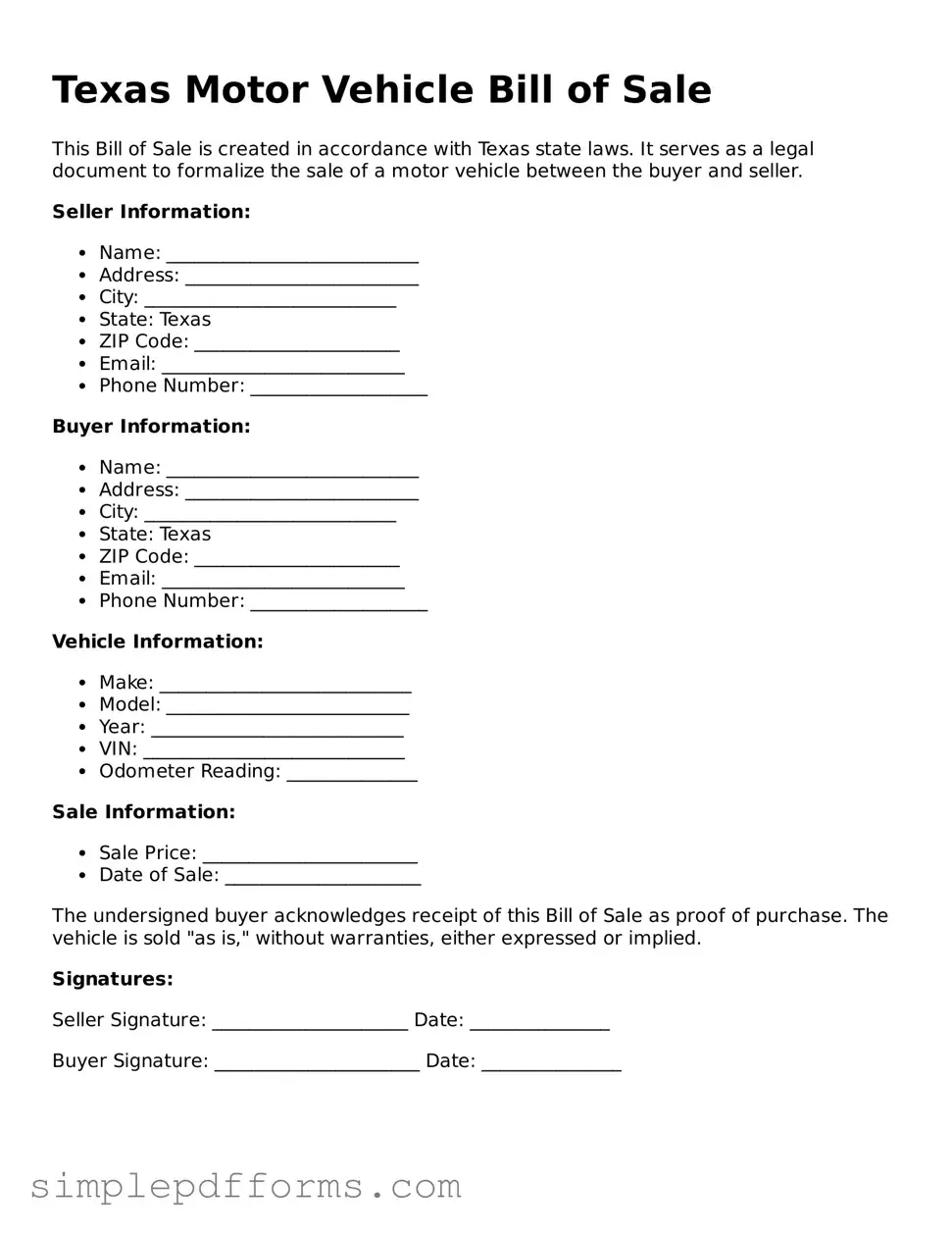Attorney-Verified Motor Vehicle Bill of Sale Document for Texas State
The Texas Motor Vehicle Bill of Sale form is a legal document that records the transfer of ownership of a vehicle from one party to another. This form serves as proof of the sale and includes essential details about the vehicle and the parties involved. Understanding its importance can help ensure a smooth transaction and protect both buyers and sellers.
Open Motor Vehicle Bill of Sale Editor Now

Attorney-Verified Motor Vehicle Bill of Sale Document for Texas State
Open Motor Vehicle Bill of Sale Editor Now

Open Motor Vehicle Bill of Sale Editor Now
or
Get Motor Vehicle Bill of Sale PDF Form
Your form is waiting for completion
Complete Motor Vehicle Bill of Sale online in minutes with ease.